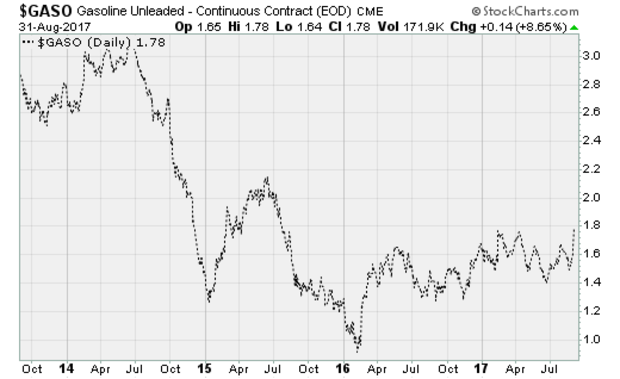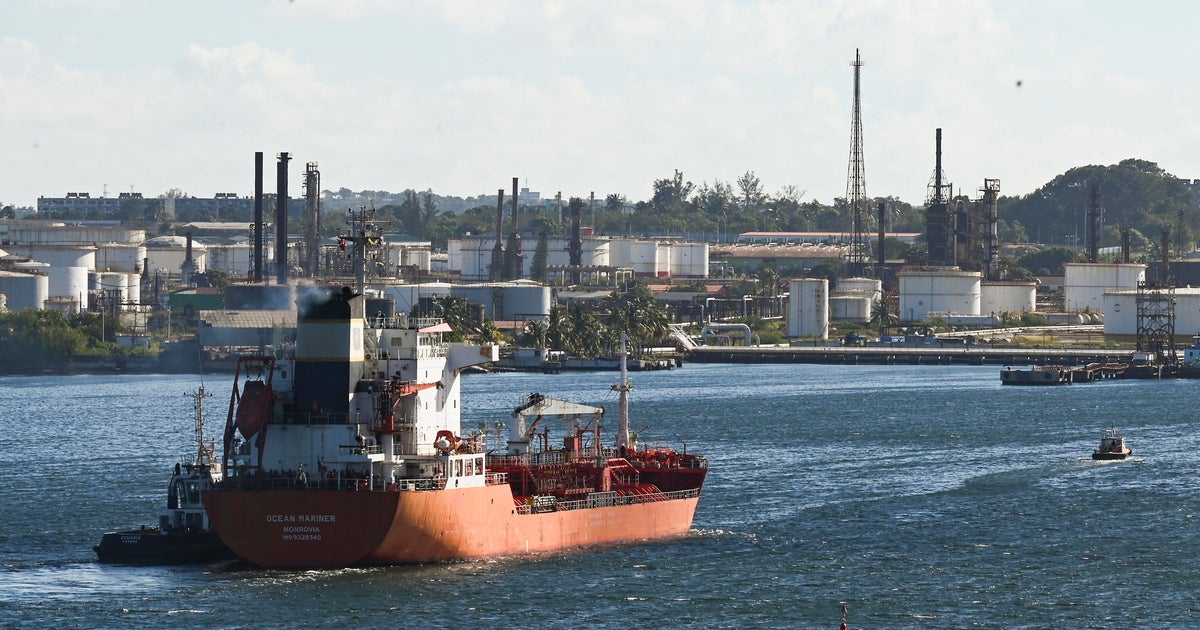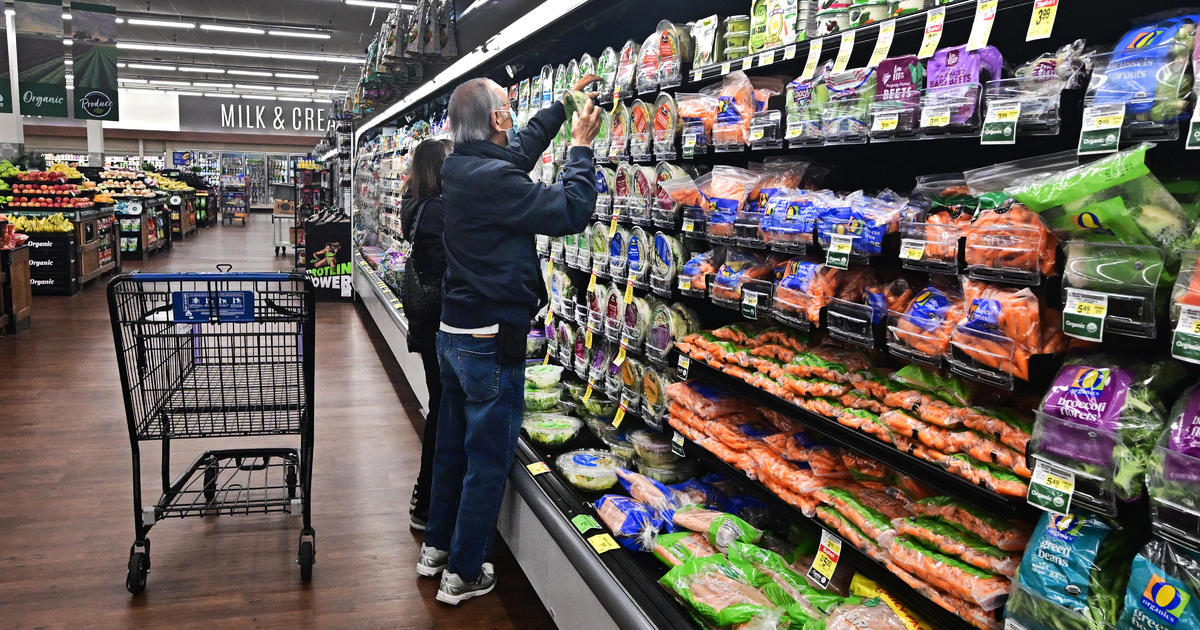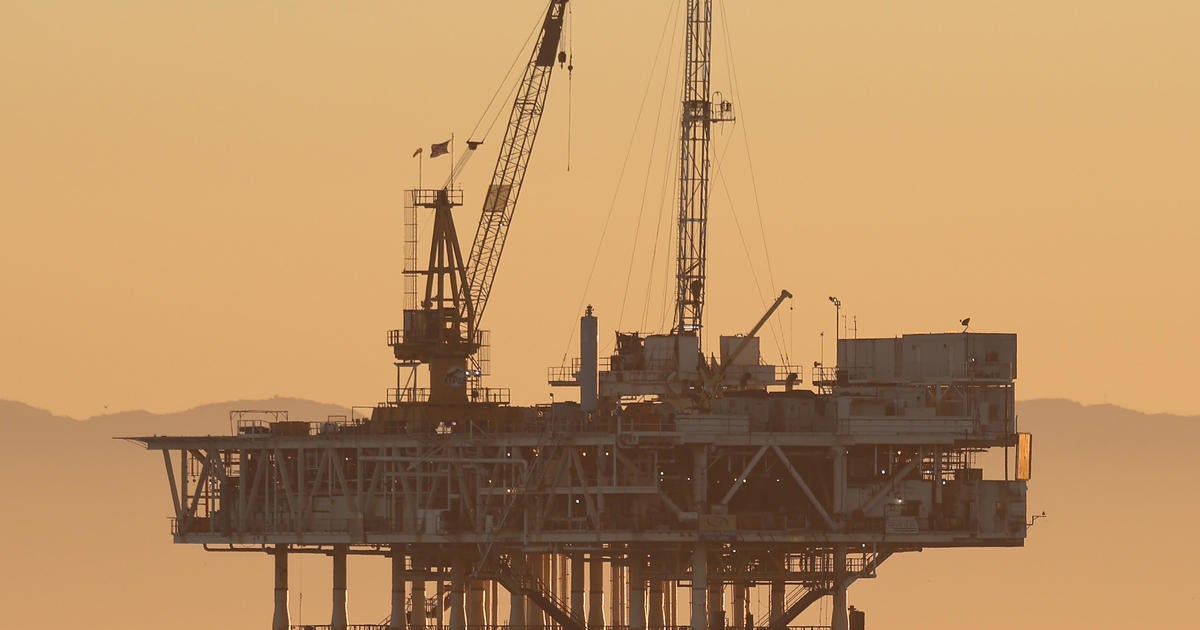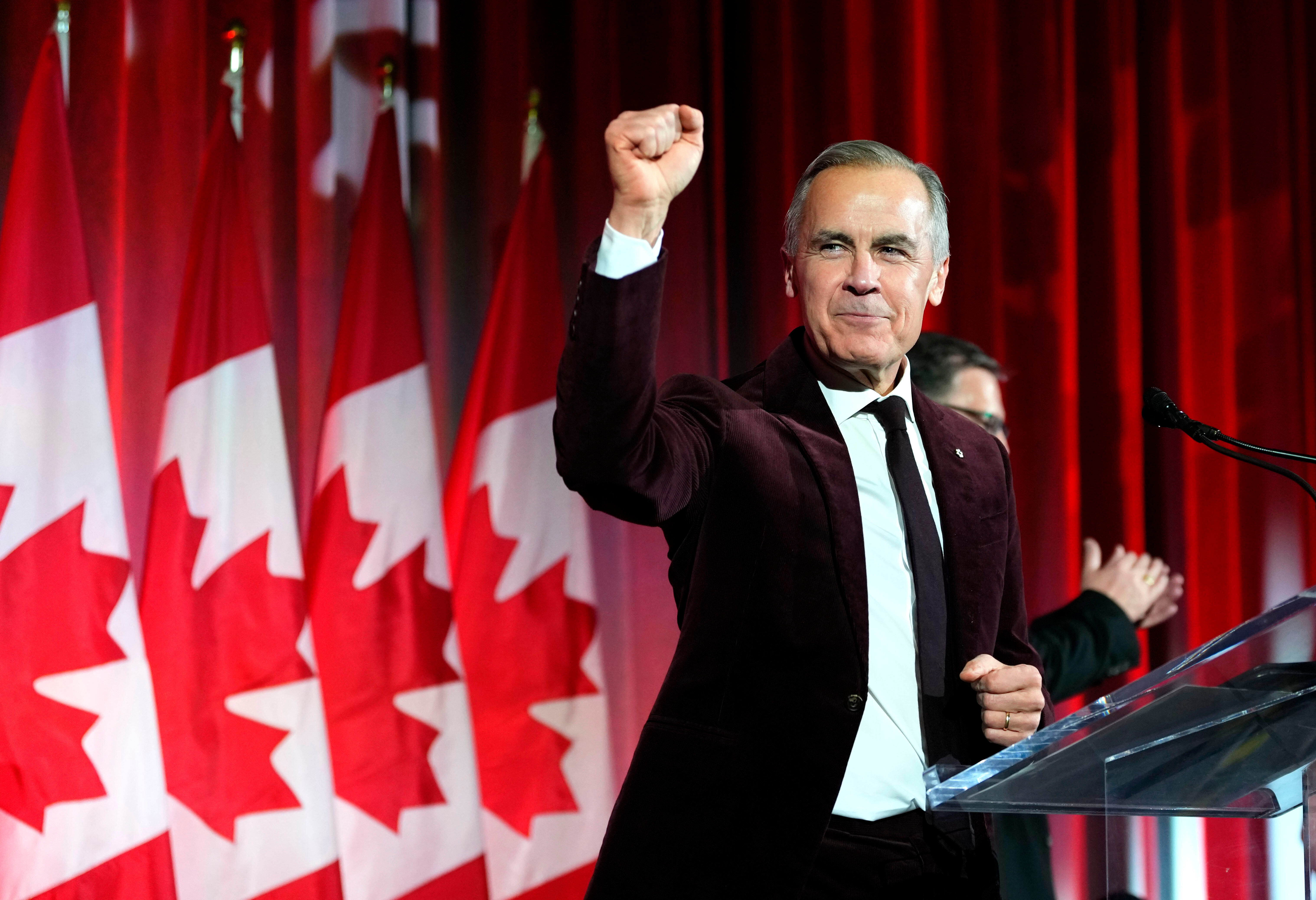Hurricane Harvey's impact on energy sector, U.S. economy
Headlines have been filled with the aftermath of Hurricane Harvey. The flooded homes. The washed-out cars. The displaced souls. And the refinery closures -- representing about a fifth of U.S. capacity, according to S&P Global Platts.
While total damage estimates are rising fast, the impact on the overall economy seems limited. It's a Keynesian dream amid the current nightmare, in a way, since the rebuilding and cleanup will likely boost GDP.
Wall Street has been focused on the energy industry impact, with gasoline prices spiking and crude oil drifting lower as the nation's refinery supply chain is disrupted, resulting in too much crude and not enough refined product. Wholesale gasoline prices surged nearly nine percent in trading on Thursday, pushing to highs not seen since April.
Further upside pressure would push prices to levels not seen since the summer of 2015. And that will have an impact on everything from consumer spending to inflation pressure and corporate earnings growth.
Much depends on how quickly refineries can restart. Motiva is preparing to start its 603,000 barrel per day facility in Port Arthur, Texas, the nation's largest, but is unable to provide a firm timeline. The U.S. government is doing what it can, releasing a million barrels of oil from the Strategic Petroleum Research to a Philips 66 refinery in Lake Charles, Louisiana, to keep it humming despite oil supply constraints at local ports. The government has also relaxed requirements for regional gasoline blends, allowing supply to more easily meet demand.
Capital Economics highlights the shutdown differential between refineries and oil pumping infrastructure -- at four million barrels per day vs. one million barrels per day -- but sees any downside pressure on crude oil as temporary. This rests on the belief that exports will increase as cheaper oil looks for available refiners at home or overseas, driven by the spread between West Texas Intermediate (U.S.-based) and Brent crude (the European benchmark) hitting two-year highs.
RBC Capital Markets analysts believes most capacity will be back online within the next week or so while admitting that the full extent of the storm damage is currently unclear.
As for consumers, IHS Markit estimates higher gas prices will hit consumer spending in the third quarter, depressing real spending growth by 0.3 percent. A pain, but not enough to keep spending from eclipsing the strong back-to-school spending performances of 2015 and 2016, in their view.
Finally, turning to energy-sector earnings, it's worth noting that the sector by far led the way during the second quarter reporting year-over-year earnings growth of nearly 330 percent, thanks to a 15.5 percent rise in revenue. The result was driven by easy comparisons to the miserable year-ago period.
Harvey's impact is likely to be a mixed bag, since downstream exploration and production will be pinched by lower crude prices but upstream refineries like Valero (VLO) will enjoy higher profitability thanks to wider "crack spreads" between gas and oil prices.
